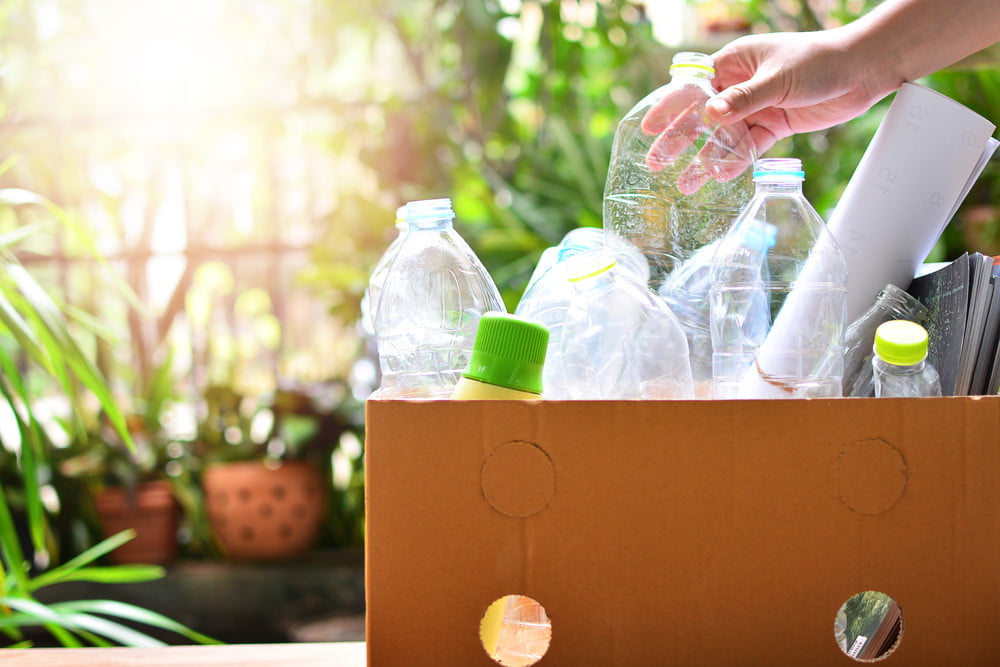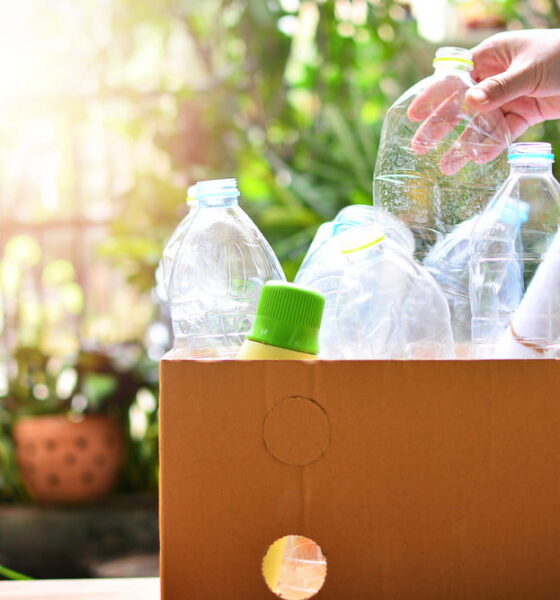There are many things that begin at home: charity, respect, honesty. Another thing that begins at home? Learning about proper waste management and minimizing waste. There are a lot of simple things you and your family can do to reduce the amount of waste you produce at home. In turn, this can translate to even more earth-friendly practices. Here are a few tips to help get you started.
Recycle, Recycle, Recycle
Before you throw things away, check its labels to see if it can be recycled. More importantly, learn the meaning of various recycling symbols. The mobius loop or the three green arrows forming a triangle is the basic indicator that the item can be recycled. Black mobius loops with the numbers 1 to 7 in the center, meanwhile, indicate the type of plastic used. The number also determines how difficult it is to recycle the material. Numbers 1 and 2 are the easiest to recycle; 3 and 4 are a little more difficult to recycle; 5 and 6 are hard or impossible to recycle; and 7 is difficult to recycle. Inquire with your local council regarding recycling regulations. Of course, it’s still best to opt for reusables. However, recycling goes a long way to minimize waste from going to the landfills.
Clean Up the Clutter
A clean home is not just comfortable, it’s also safe and healthy. Develop the habit of thoroughly cleaning your home about once or twice a year, getting rid of trash and other things that you no longer need. Sort what needs to be sorted, especially those that can be donated and recycled. For the rest of the trash, hire a skip bin or two. They’re not exactly cheap, but hiring one for a couple of days will help make spring cleaning a bit more hassle-free. Do a skip bin price comparison and you’re sure to find one that suits your needs.
Don’t Waste Food
You might think that wasting food is “harmless,” especially if you practice composting at home. However, wasting food also means you’re wasting the resources that went into growing, harvesting, processing, and transporting the food. One way to help reduce food waste is to create meal plans, so you don’t buy excess food and other ingredients.
Buy in Bulk
If there are things you should buy in bulk, they would be the non-perishable items you regularly use, like soap and shampoo, detergent, pet food, and toilet paper. Buying in bulk not only minimizes waste, but it can also net you quite a bit of savings. If you want to buy food items in bulk, evaluate yourself first if you can consume that amount of food before it spoils.
Use Reusables
Instead of buying bottled water, buy a reusable water bottle that you can take with you anywhere. Instead of using plastic or paper shopping bags, opt for reusable canvas bags. You should also invest in high-quality lunch kits for your homemade meals to bring to work or school. Finally, reusable air-tight containers are great investments for the kitchen. You can store cereals, baking ingredients, and other loose food items in these containers to keep them fresher for longer.
Buy Second-Hand
Despite what advertisements tell you, you don’t have to have all the newest products and latest technologies. As long as you take care of your belongings properly, you can count on them to last you for years. If you do have to buy something, considering buying second-hand items. Some of the best items to buy second-hand are appliances and gadgets, vehicles, furnishings, and children’s clothes and toys.
Repair, Don’t Throw
In relation to buying second-hand, try to repair something first before deciding you need to replace or throw them away. Learn some basic home and car maintenance skills, a bit of sewing, and maybe even some simple computer troubleshooting. For more complicated procedures, consult with a professional first and see if something can be fixed. If nothing can be done to salvage the item, choose a high-quality replacement that will last longer.
Borrow or Rent, Don’t Buy
There are a lot of items that you feel like you should have at home but that, in reality, you will only use from time to time. These include things like power tools, ladders, camping equipment, luggage (unless you travel often), and gardening tools. Consider borrowing them from your friends, family, or neighbors instead of buying. You’ll save not just money but also precious space in your home.
Conclusion
The great thing about minimizing waste at home is that it’s not just for the benefit of the planet. It’s also for the benefit of your family. You’ll have a clean, comfortable, and safe home, and develop practical, money-saving habits, too. Start with a few of these tips and see how much of a difference they could make.


 Environment12 months ago
Environment12 months agoAre Polymer Banknotes: an Eco-Friendly Trend or a Groundswell?

 Features11 months ago
Features11 months agoEco-Friendly Cryptocurrencies: Sustainable Investment Choices

 Features12 months ago
Features12 months agoEco-Friendly Crypto Traders Must Find the Right Exchange

 Energy11 months ago
Energy11 months agoThe Growing Role of Solar Panels in Ireland’s Energy Future


















